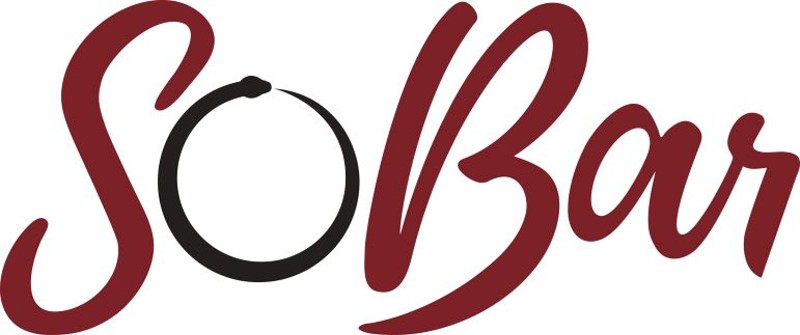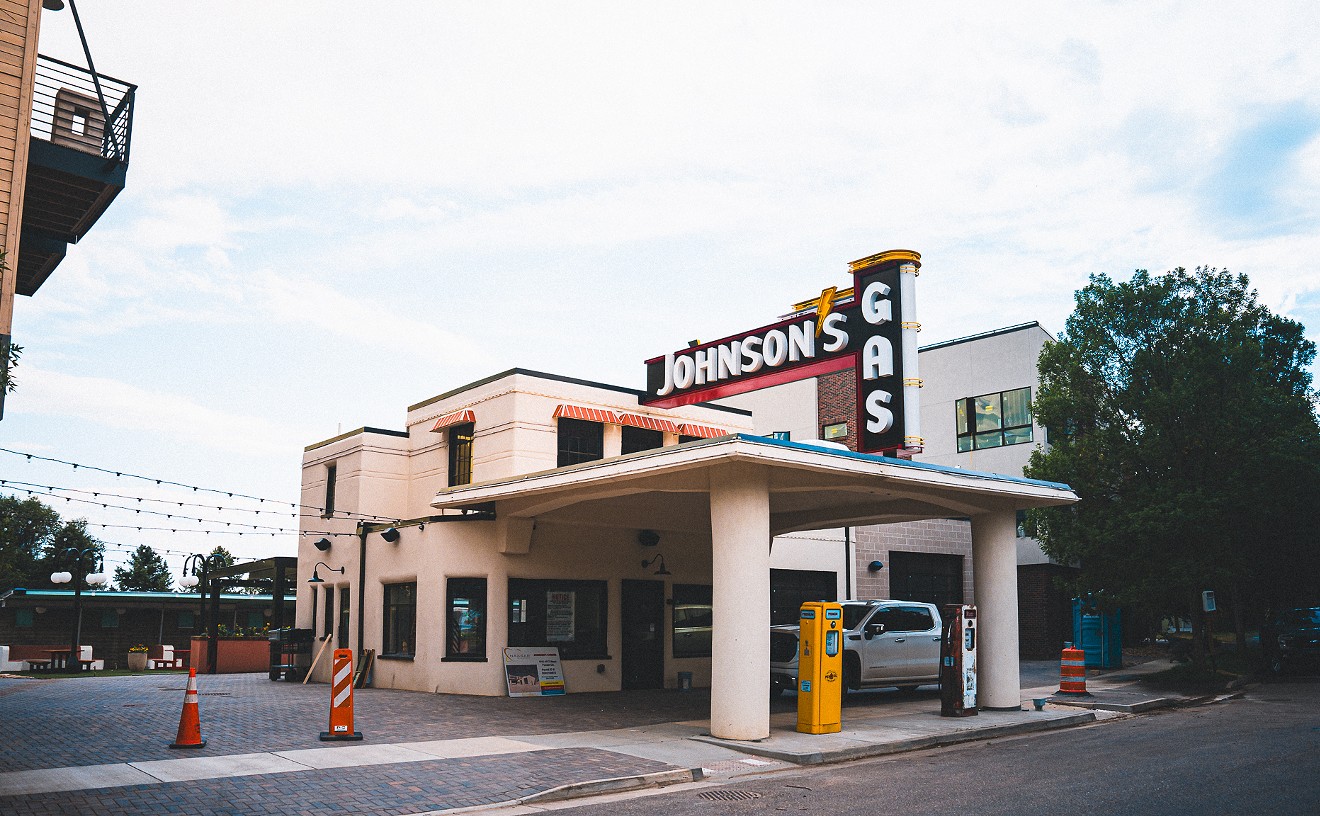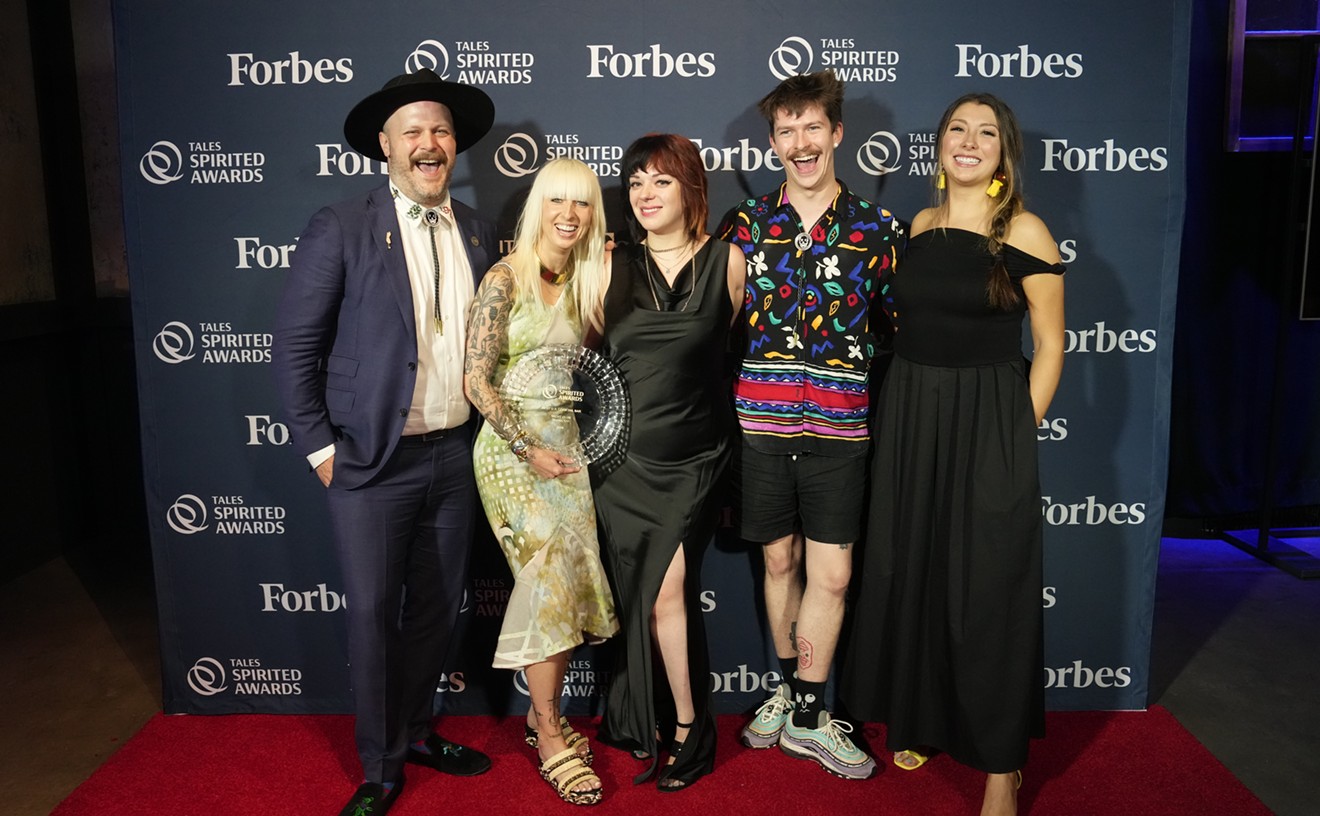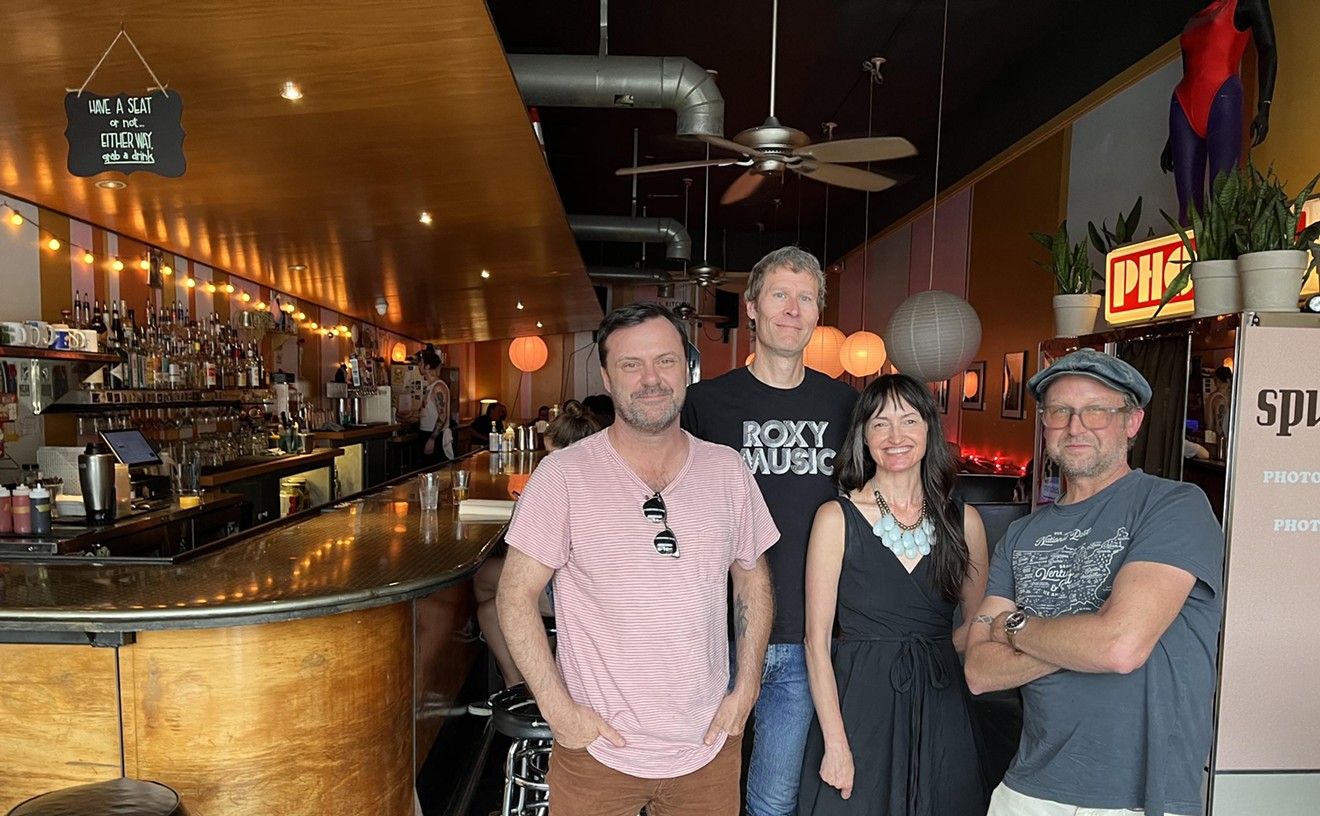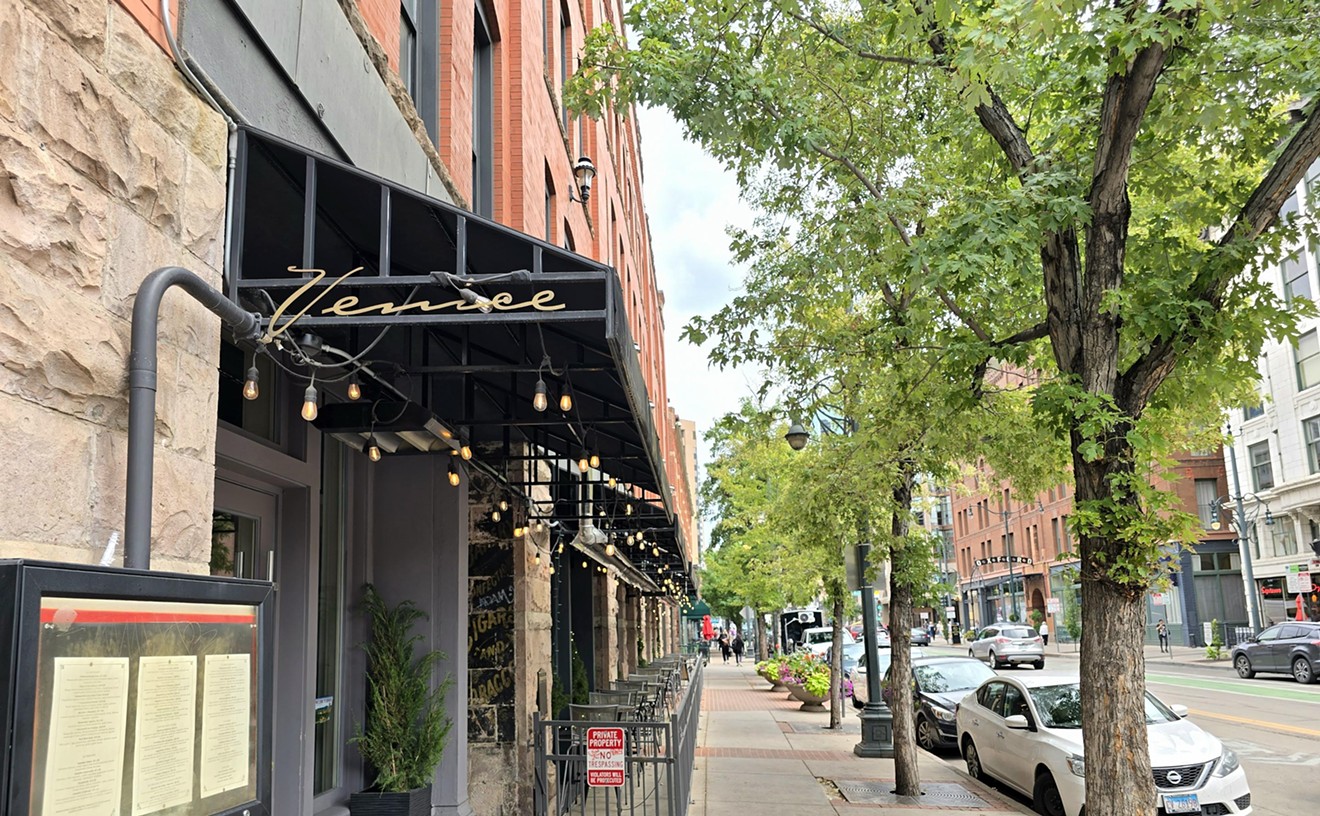The restaurant industry is infamous for chewing up workers and then spitting them out — especially those struggling with addiction. Emily Schrader knows all about that; she didn't get sober until she got out of the business.
Schrader, now a professional counselor and consultant specializing in substance-use issues, got into food service after graduating from college with a degree in French, first working in the kitchen and then in the front of the house, "because you could make more money waiting tables."
She returned to school to study counseling psychology, but even after she earned her master's in that field, she continued to work in restaurants. "It was easier to support my lifestyle," she recalls. "Over the last two years of school, I realized I had a problem with alcohol." Eventually she got sober, though, and dedicated her career to counseling others battling addiction.
And now, nearly two decades later, Schrader is getting back into the restaurant business. This time, however, she's making sobriety a central theme of her work. She's starting SoBar, a full-service, nonprofit restaurant that will be operated by employees in recovery from addiction. SoBar will serve as a drug- and alcohol-free gathering space for those looking to have a social life outside of standard bars and restaurants.
"I miss working in the restaurant business," Schrader explains. "It's very social, and I'm a social person. But where do you go that's safe and with like-minded people? In addiction treatment, people stay home, or they go to meetings, and they might form a social circle out of that. But all of us in recovery have been relegated to church basements and three-day-old coffee."
SoBar will be different, she says. Schrader's plans include upscale food and the sort of welcoming atmosphere you find in Denver's most popular restaurants — only drinking won't be part of the mix.
In fact, SoBar will offer on-the-job training for people in early recovery, and will act as an employment option for those "who have been in the restaurant business and know it's not safe to go back to," Schrader notes. "I would like to have the majority of staff be people who have come to us and worked their way up. The culture of workers is a top priority; I've worked in places that were terrible and in places that were like family." She wants SoBar to be the latter.
The idea for SoBar had been building in Schrader's mind for the past several years. "Somebody should do this because it's a good idea, but I didn't think it would be me," she admits. Researching the concept, she didn't find anything quite like it anywhere in the country, but she recently visited an organization in San Francisco called Delancey Street Foundation, which offers shelter to "people who have hit rock bottom" and runs several businesses, including a cafe managed by Delancey Street residents. "I like their community approach to helping people make their lives better," Schrader says.
SoBar has received its 501(c)3 designation as a nonprofit organization and has a small board of directors that includes Rourke Weaver, Larry Wall and Gina de Peralta Thorne (who all have backgrounds in health care and addiction-recovery support). Schrader's now raising funds for the project, and doesn't yet have a location for the restaurant; she says she likes Five Points, particularly the River North Art District area. While rent is high in that part of Denver, she's discovered that incentives are available for nonprofits, and feels that the neighborhood mission aligns with SoBar's goals of being multicultural and inclusive. "If it's not there, then it will be somewhere near, but not in, downtown," she adds.
Her plans currently call for SoBar to be open for dinner, with catering service offered during the day. "We'll have to be very creative — since we won't have alcohol — to make money," Schrader says. While the base menu will be New American, Schrader hopes to land guest chefs who'll create special menus on a rotating basis. Other ideas include promoting January as a detox month for people who may want to lay off alcohol for a short time, and booking baby-shower groups and other events where pregnant women can feel comfortable without the pressure of alcohol around them.
Schrader and her partners will be getting the word out at the 45th annual Psychotherapy Associates Winter Symposium for addiction and mental health professionals in Colorado Springs at the end of January, and will also hold a spring fundraiser to help raise the $400,000 she wants to have in hand to open the restaurant. Once it's open, she expects SoBar to be self-sustaining.
In SoBar's logo, the "o" is represented by an ouroboros, a snake eating its own tail — a symbol often used by those in recovery as a reminder of the addiction cycle. With her restaurant, Schrader hopes to offer the sustenance of good food and good company, without the gnawing dread of addiction.
[
{
"name": "Air - MediumRectangle - Inline Content - Mobile Display Size",
"component": "12017618",
"insertPoint": "2",
"requiredCountToDisplay": "2",
"watchElement": ".fdn-content-body",
"astAdList": [
{
"adType": "rectangle",
"displayTargets": "mobile"
}
]
},{
"name": "Editor Picks",
"component": "17242653",
"insertPoint": "4",
"requiredCountToDisplay": "1",
"watchElement": ".fdn-content-body",
"astAdList": [
{
"adType": "rectangle",
"displayTargets": "desktop|tablet"
},{
"adType": "rectangle",
"displayTargets": "desktop|tablet|mobile"
}
]
},{
"name": "Inline Links",
"component": "18838239",
"insertPoint": "8th",
"startingPoint": 8,
"requiredCountToDisplay": "7",
"maxInsertions": 25
},{
"name": "Air - MediumRectangle - Combo - Inline Content",
"component": "17261320",
"insertPoint": "8th",
"startingPoint": 8,
"requiredCountToDisplay": "7",
"maxInsertions": 25,
"watchElement": ".fdn-content-body",
"astAdList": [
{
"adType": "rectangle",
"displayTargets": "desktop|tablet"
},{
"adType": "rectangle",
"displayTargets": "desktop|tablet|mobile"
}
]
},{
"name": "Inline Links",
"component": "18838239",
"insertPoint": "8th",
"startingPoint": 12,
"requiredCountToDisplay": "11",
"maxInsertions": 25
},{
"name": "Air - Leaderboard Tower - Combo - Inline Content",
"component": "17261321",
"insertPoint": "8th",
"startingPoint": 12,
"requiredCountToDisplay": "11",
"maxInsertions": 25,
"watchElement": ".fdn-content-body",
"astAdList": [
{
"adType": "leaderboardInlineContent",
"displayTargets": "desktop|tablet"
},{
"adType": "tower",
"displayTargets": "mobile"
}
]
}
]

